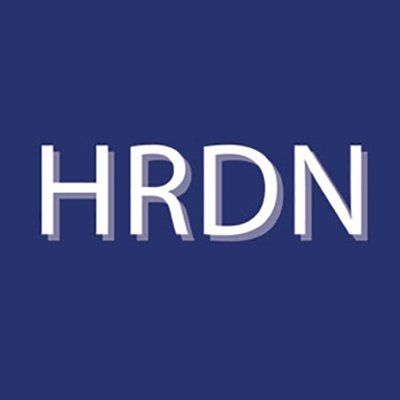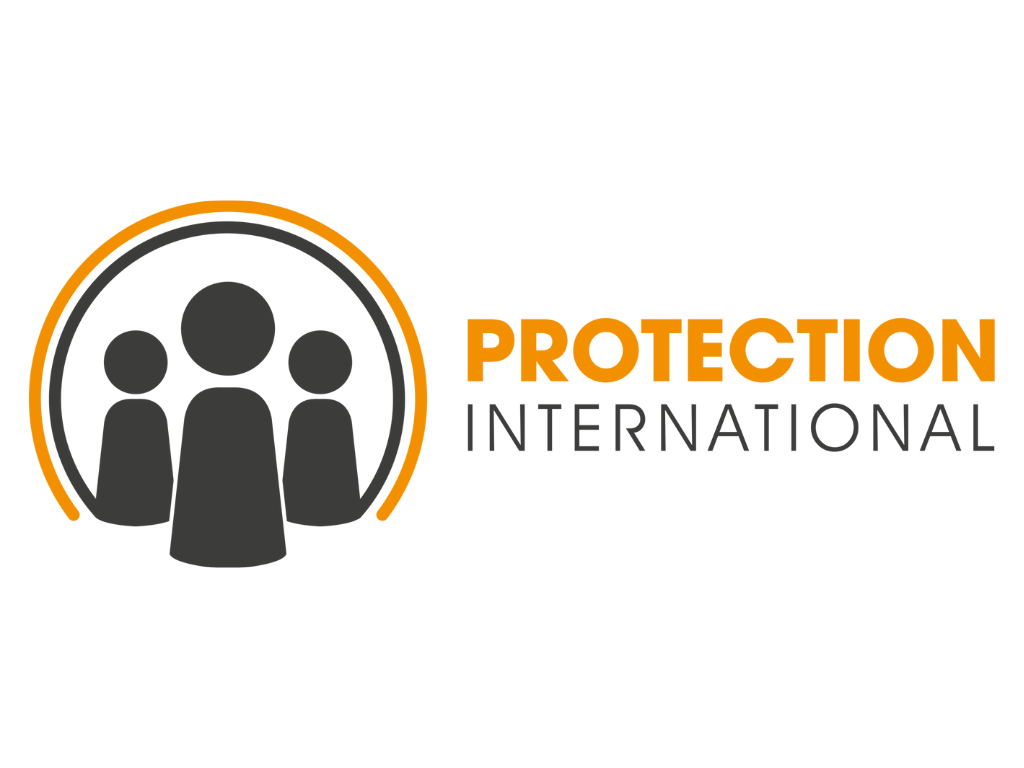
Ms Ursula Von der Leyen
President
European Commission
cc:
Ms Henna Virkkunen, Executive Vice-President for Tech and Sovereignty, Security and Democracy
Mr Michael McGrath, Commissioner for Democracy, Justice, the Rule of Law and Consumer Protection
Brussels, 16 October 2025
Re: A comprehensive framework to protect, support and empower civil society in the EU
Dear President Von der Leyen,
The Human Rights and Democracy Network’s EU Internal Human Rights Policy Working Group1 welcomes the forthcoming EU Civil Society Strategy, scheduled for adoption on 12 November. This initiative represents a landmark opportunity to deliver on the EU’s commitment to strengthening protection and support for civil society organisations (CSOs) and human rights defenders (HRDs) at the forefront in upholding the Union’s values, at a time when they face unprecedented pressure across Europe.
Across the EU, civil society actors – especially those working on human rights, environmental protection, equality, migration and anti-corruption – face mounting challenges2. From legal and administrative harassment to smear campaigns, funding cuts, and restrictions to freedom of expression, association and peaceful assembly, these trends undermine accountability, weaken trust in institutions and erode the rule of law. Rather than harnessing civil society’s capacity to foster citizens’ engagement and inclusion and drive social innovation, governments are increasingly constraining it, threatening the democratic fabric on which the Union is built.
As the Strategy is being finalised, we urge the Commission to ensure that it provides a comprehensive, rights-based framework to guarantee civil society’s protection, participation and sustainability, thereby reinforcing the EU’s credibility in championing democracy and human rights globally. To achieve this, the Strategy should include the following key elements3:
An EU Protection Mechanism for Human Rights Defenders and Civil Society. Drawing on lessons from EU policies to protect HRDs abroad, such as the EU external Guidelines on HRDs and the ProtectDefenders.eu mechanism, the Strategy should establish a dedicated, sustainable and long-term protection system for CSOs and HRDs within the EU. This mechanism should include:
◦ a secure, institutional platform to report threats and attacks, enabling defenders to raise alerts and ensuring accountability from relevant authorities;
◦ a rapid response mechanism providing urgent physical, legal, digital and psychosocial support, building on lessons from ProtectDefenders.eu.
◦ meaningful civil society participation in governance and cooperation with national human rights institutions and equality bodies to ensure accessibility and trust;
◦ a gender-sensitive and intersectional approach reflecting the specific risks faced by marginalised HRDs.
◦ a complementary legal framework in the form of a directive on protection and mobility of HRDs from non-EU countries, to ensure their safe entry, residency and protection to continue their work.
Systematic civic space and human rights impact assessments. The Strategy should institutionalise civic space and human rights impact assessments across all EU policies and legislation, to ensure coherence with the EU Fundamental Rights Charter and that initiatives do not inadvertently restrict fundamental rights. This requirement should be embedded in the Better Regulation Toolbox, accompanied by guidance for EU institutions and member states. It should feed into work to support an enabling legal framework for civil society, including swift legal action when violations are identified.4
Long-term, flexible and predictable support5. The EU should invest in European civil society’s long-term resilience. The next Multiannual Financial Framework (MFF) should:
◦ establish structural, flexible and predictable funding lines to support CSOs’ independence, security and protection management strategies, and long-term planning;
◦ prioritise core costs, simplified procedures and re-granting schemes accessible to smaller and grassroot organisations, in particular those led by women, youth and other under-represented groups;
◦ promote an enabling framework for cross-border philanthropy and international solidarity.
Institutionalised, structured and inclusive civil dialogue. Building on Commission Recommendation 2023/2836, the Strategy should set minimum standards for structured civil dialogue at EU and national levels. This should include guidance on consultation practices, including clear principles for consistent, timely, transparent, meaningful and inclusive engagement across the policy cycle, and mechanisms to monitor and evaluate participation.
Strengthened monitoring and early warning systems. A robust EU-wide monitoring and early warning mechanism on civic space should be established, to track threats to CSOs and HRDs and inform preventive and corrective action. This should build on other initiatives such as the EU System for an Enabling Environment (EU SEE )6, the Fundamental Rights Agency’s civic space indicators and the Rule of Law Reports. Regular reporting and alerts should feed into targeted EU support and enforcement measures. The Strategy, the RoL Reports and the European Democracy Shield should form a coherent and mutually reinforcing framework.
A positive narrative on civil society and HRDs. The Strategy should include a strong communication and visibility component that recognises civil society’s and HRDs’ contribution to democracy, human rights protection and social cohesion, and counters disinformation, delegitimisation campaigns and stigmatisation. To this end, the Strategy should provide a framework to analyse dominant narratives and to strategically design and fund targeted actions that strengthen positive messaging and counter harmful ones.
A gender-sensitive and intersectional approach ensuring the meaningful participation of under-represented groups. The Strategy should recognise and uphold the crucial role of civil society in promoting justice and equity by supporting the civic participation of under-represented groups such as women, youth, people with disabilities, ethnic, caste and religious minorities. The Strategy and any action flowing from it must be gender sensitive, taking into account the very specific gendered risks and protection needs faced by women human rights defenders.7 It should also integrate a strong intersectional dimension, and effectively interact with other forthcoming EU Equality Strategies and frameworks. As young people tend to engage more actively in civic initiatives than in formal politics, enhanced support for youth civic participation is essential.
We trust that the Civil Society Strategy will translate the EU’s commitment to strengthening protection, support and participation of civil society actors into a coherent and practical framework for action. By embedding these priorities across all policies and programmes and engaging civil society as a genuine partner in its development and implementation, the EU can build a more enabling, safe and participatory environment for those defending its core values.
We look forward to our continued cooperation to ensure the Strategy achieves its full potential. Your sincerely,
The Human Rights and Democracy Network’s EU Internal Human Rights Policy Working Group
On behalf of:
Amnesty International
Araminta
Avocats Sans Frontières (Belgique)
Center for Reproductive Rights
End FGM
European Network Against Racism (ENAR) European Partnership for Democracy (EPD) FIACAT
Free Press Unlimited
Front Line Defenders
Human Rights House Foundation
Human Rights Watch (HRW)
ILGA-Europe
International Commission of Jurists
International Dalit Solidarity Network (IDSN) International Federation for Human Rights (FIDH) IPPF European Network (IPPF-EN)
Netherlands Helsinki Committee
Protection International
Quaker Council for European Affairs (QCEA) Reporters Without Borders (RSF)
Scholars at Risk Europe
1 The Human Rights and Democracy Network (HRDN) is a network gathering 67 non-governmental organisations working on democracy and human rights at the European Union (EU) level. The EU Internal Human Rights Policy Working Group advocates for a comprehensive strategy to strengthen EU action on human rights across all EU internal policies.
2See: European Union Agency for Fundamental Rights, Summary of key findings from FRA’s civic space consultation covering 2024,https://fra.europa.eu/sites/default/files/fra_uploads/report-key-findings-fra-civic-space-consultation-2024_en_0.pdf; Commissioner for Human Rights of the Council of Europe, Alarming trends: the crisis facing civil society and human rights defenders in Europe, 9 October, https://www.coe.int/en/web/commissioner/-/alarming-trends-the-crisis-facing-civil-society-and human-rights-defenders-in-europe.
3 Our recommendations build on the findings and recommendations developed by an informal coalition of NGOs including several HRDN members and gathered in two papers: Realising protection for human rights defenders and civil society organisations in Europe – Mapping Paper, https://www.fidh.org/IMG/pdf/protection_mechanism_mapping_final_october_2024.pdf and Realising Protection for Human Rights Defenders and Civil Society Organisations in Europe – Pathways Towards an Effective Protection Ecosystem, https://www.fidh.org/IMG/pdf/protection_mechanism_pathways_paper_final_october_2024.pdf, both published in October 2024. They also build on the assessment and recommendations put forward in the Civil Society Europe Contribution to the Consultation on the EU Civil Society Strategy, that HRDN contributed to and that was submitted on 5 September 2025 in response to the Call for evidence and public consultation on a new EU Civil Society Strategy launched by the European Commission on 13 June 2025, https://civilsocietyeurope.eu/wp-content/uploads/2025/09/Civil-Society-Europe-Contribution_Consultation-on-the-Civil-Society-Strategy.pdf.
4 Civil Liberties Union for Europe, Stand with civil society to protect human rights – A bold civil society strategy for the European Union, September 2025, https://www.liberties.eu/f/amspsy.
5For more detailed recommendations on the next MFF, see: Civil Liberties Union for Europe, Amplify CERV to Protect Rights – Briefing Paper on Why Rights & Values Funding Should Be Raised By 0,5% In The Post-2027 EU Budget, July 2025, https://www.liberties.eu/f/15liql.; Civil Society Europe, Civil Society Europe’s Reaction to the Multiannual Financial Framework 2028-2034: Progress for Some, Setbacks for Others, July 2025, https://civilsocietyeurope.eu/wp-content/uploads/2025/10/CSEs Reaction-to-the-Proposed-MFF-2028-2034.pdf.
6EU SEE defines six enabling principles for civil society: respect and protection of fundamental freedoms; a supportive legal and regulatory framework; accessible and sustainable resources; an open and responsive State; a supportive public culture and discourses on civil society; access to a secure digital environment.
7For more detailed recommendations on how to integrate a gender-sensitive approach to the Civil Society Strategy, please see this joint submission by 21 organisations working on gender equality in 14 national contexts across Europe and at EU level: https://reproductiverights.org/recommendations-for-the-eu-civil-society-strategy/.


